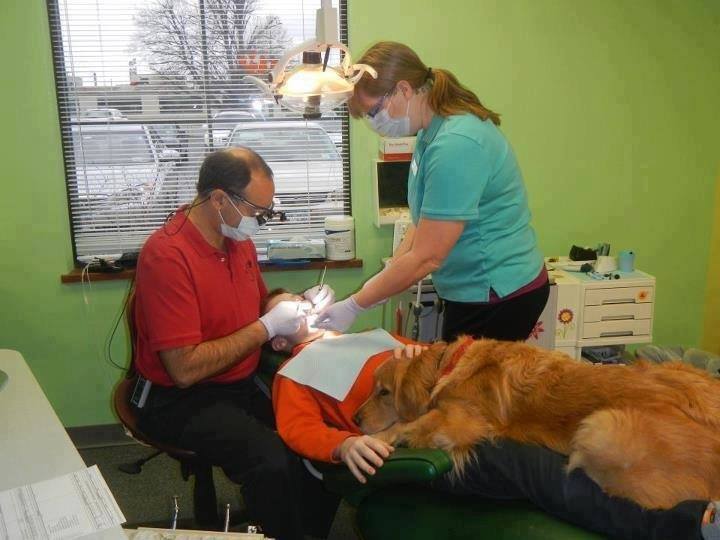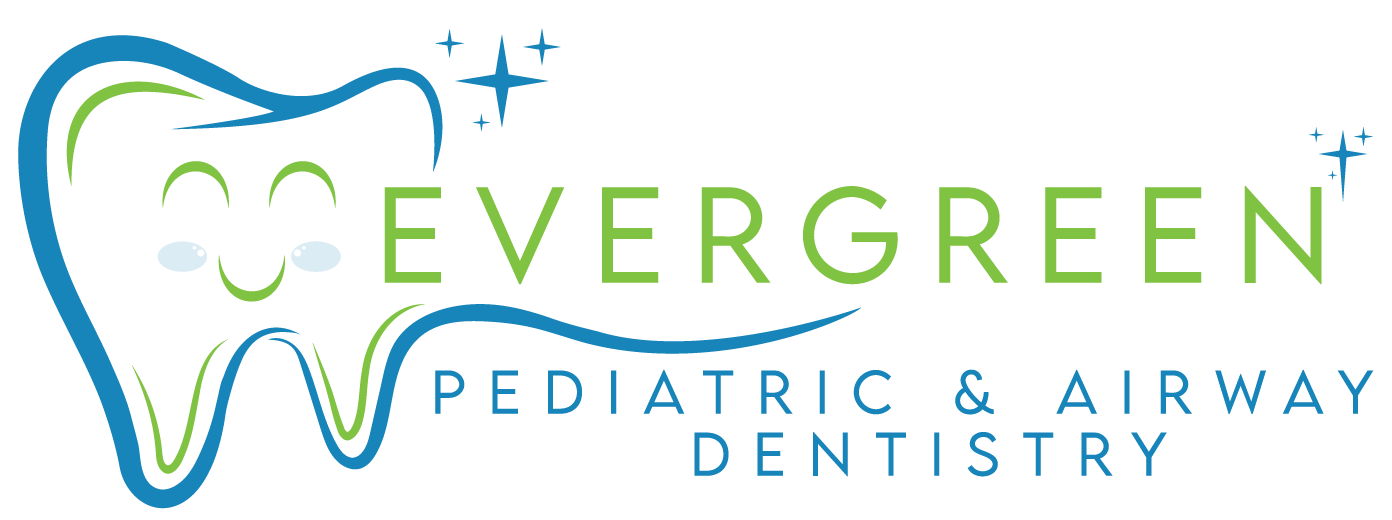Navigating Local Healthcare Networks for Infant Tongue Tie Solution Near Me
As a parent, we always want the best for our children. When it comes to their health, we go above and beyond to ensure they receive the best care possible. However, navigating through local healthcare networks can be overwhelming and frustrating, especially when trying to find a infant tongue tie solution near me. This condition can affect breastfeeding, speech development, and overall comfort for both the baby and mother. In this blog post, we will dive into how you can navigate your local healthcare network to find effective solutions for infant tongue ties. From understanding what this condition entails to finding the right healthcare professionals who specialize in treating tongue ties, this guide will provide you with all the information you need as a concerned parent looking for effective solutions that cater specifically to your child’s needs. So let’s get started on this journey towards providing your little one with relief from tongue ties!

Infant Tongue Tie
Research available healthcare providers
As a parent or caregiver, finding the right healthcare providers for your baby’s care is paramount. It is essential to engage in diligent research to ensure that you receive the best possible care. One of the best ways to start your search is by contacting local lactation consultants and pediatricians. These specialists are knowledgeable about the local medical community and can provide you with referrals for top-quality healthcare providers who can diagnose and treat tongue tie effectively.
Lactation consultants and pediatricians can provide valuable insights into the healthcare providers in your community who specialize in tongue tie diagnosis and treatment. By seeking referrals from these professionals, you can have peace of mind knowing that you’re receiving a recommendation from a trusted expert about a qualified healthcare provider. With their years of experience and meticulous training, lactation consultants and pediatricians can also provide you with educational resources on how to identify the signs of tongue tie and the benefits of early diagnosis and treatment. By taking this proactive approach, you can ensure that your baby receives the best possible care from a healthcare provider who is knowledgeable, compassionate, and effective in managing their tongue tie.
In conclusion, when searching for healthcare providers to diagnose and treat your baby’s tongue tie, it is essential to engage in diligent research by reaching out to local lactation consultants and pediatricians. By leveraging their expertise and knowledge of the community, they can provide you with valuable referrals to qualified healthcare providers. Don’t wait to seek out these resources – the earlier you diagnose and treat your baby’s tongue tie, the better their long-term outcomes will be. Start by contacting your local healthcare providers today and begin your journey to finding the best possible care for your baby.
Schedule initial consultation
Scheduling an initial consultation for an Infant Tongue Tie Solution is a vital step in ensuring that infants with tongue ties receive the appropriate care. During the consultation, professionals will gather the necessary information to better understand the infant’s medical history and feeding habits. This information is crucial in determining whether the infant has a tongue tie that requires intervention. They also perform a thorough physical evaluation to assess the infant’s physical presentations and symptoms. This evaluation will assist us in confirming or ruling out the presence of a tongue tie.
To prepare for the consultation, it is important to gather the infant’s medical records and feeding history. The feeding history will provide us with an accurate understanding of the infant’s feeding habits, including types of feed, frequency, and volume. It will also identify any difficulties the infant may be experiencing, such as difficulty with latching or swallowing. The medical records provide insights into any prior medical interventions and any health concerns the infant may have had. During the consultation, our team of professionals will review this information and work with the caregiver to develop a customized plan for the infant’s care.
Scheduling an initial consultation for Infant Tongue Tie ensures that infants receive the most appropriate care for their needs. Professionals are dedicated to evaluating physical presentations and symptoms in a supportive and compassionate manner to allow for a clear diagnosis. The information gathered during the consultation will assist in developing an individualized care plan that mitigates the negative effects that tongue tie can have on an infant’s health, physical development, and feeding experience.

Diagnosing Tongue Tie
Discuss treatment options
Infant tongue tie is a condition that affects a significant portion of the pediatric population, where the frenulum (membrane connecting the tongue to the base of the mouth) is unusually short or tight, causing difficulties in breastfeeding, speech, and oral hygiene. In such cases, treating the condition is critical to prevent future complications and achieve optimal functional outcomes. One of the most effective solutions for infant tongue ties is the laser lingual frenotomy procedure, which is performed by specialists like ENT or dentists.
Laser lingual frenotomy is a minimally invasive procedure that involves using a laser to release the frenulum, allowing for improved tongue movement and functionality. The procedure is quick, painless, and has a low risk of complications, making it a preferred option for parents seeking to provide their infants with a reliable solution for tongue tie. When considering treatment options for infants with tongue tie, the factors that should be considered include the age of the infant, the severity of the condition, and the recommendations of the provider. Overall, laser lingual frenotomy is a safe and effective treatment option that has shown promising results in improving the quality of life for infants with tongue tie.
In summary, infant tongue ties can be a source of discomfort and functional difficulties for both the child and parents. As such, seeking treatment options early on is crucial to prevent complications and ensure optimal outcomes. Laser lingual frenotomy is an effective solution that has gained popularity in recent years due to its minimally invasive nature and favorable outcomes. By considering the age of the infant, the severity of the condition, and the recommendations of the provider, parents can make an informed decision on whether laser lingual frenotomy is the right choice for their child. Ultimately, providing children with the necessary care and interventions can go a long way in promoting their overall health and well-being.
Estimate costs and coverage
Infant tongue tie solution is a medical procedure that has become increasingly popular in recent years. Parents of infants who are struggling with breastfeeding or are experiencing speech difficulties often opt for this procedure to help their babies. Estimating the costs and coverage of infant tongue tie solution is imperative for parents as this procedure can be expensive and health insurance plans may not cover it entirely. This is why parents must research to find out whether their health insurance plan covers this procedure or not.
It is essential to check the insurance coverage of tongue-tie procedures before opting for this solution. Most insurance plans cover at least part of the cost of this procedure, but it is still necessary to read through the policy to understand the details. Some health insurance plans only cover specific aspects of the treatment, while others might require pre-authorization before paying for the procedure. Additionally, it is essential to inquire about costs for non-covered options and payment plans that can make it easier for parents to manage expenses associated with infant tongue tie solutions. Conducting thorough research and asking the right questions can help parents make informed decisions about their baby’s healthcare.
In conclusion, estimating the costs and coverage of infant tongue tie solutions is vital to making an informed decision. Parents must check their insurance plan’s coverage and inquire about costs for non-covered options and convenient payment plans. By doing so, they can ensure that their babies receive the necessary medical care without overburdening themselves financially. These considerations will not only help parents make informed decisions but also ensure that their little ones receive the best possible care.

Tongue Tie
Choose a treatment timeline
Infant tongue tie can significantly impact an infant’s ability to breastfeed or bottle-feed, leading to feeding challenges for both the baby and mother. But how does one choose a treatment timeline for such a condition? While the extent of the infant’s tongue tie may vary, treatment should ideally be done before feeding issues impact the baby’s weight gain, usually within the first few weeks of life. Early identification and treatment also minimize the need for more invasive procedures later on.
When deciding on a treatment timeline, one should also consider the infant’s weight and feeding progress. Infants who are slow to gain weight or exhibit other feeding challenges such as excessive fussiness, pain, or colic may need to be treated earlier. In contrast, if the baby is gaining weight adequately and showing no signs of discomfort or other feeding issues, then treatment may be delayed until the baby is a bit older. However, delaying treatment may mean that breastfeeding issues may become more entrenched and ultimately harder to treat.
As parents and caregivers consider treatment options for infant tongue tie, a common question that arises is how long the recovery takes and what to expect in terms of improved feeding. The good news is that treatment is usually a quick and simple procedure that involves snipping a small piece of tissue under the tongue. The procedure is often done in-office and takes only a few minutes. Recovery is generally quick, with most infants breastfeeding or bottle-feeding immediately after the procedure. In terms of feeding progress, many infants and mothers report an immediate improvement in the ease and comfort of feeding. In some cases, it may take a few days or weeks for feeding to fully stabilize as the baby learns to use their new tongue mobility, but overall, the benefits are invariably positive. By seeking timely treatment for potentially problematic tongue ties, parents can set their babies up for healthy feeding and growth, and minimize undue feeding stress and strain for both themselves and their infant.
Prepare for procedure day
As you prepare for the procedure day for infant tongue tie solution, there are a few things you need to keep in mind to ensure that everything goes smoothly. Firstly, it is crucial to get clear instructions from your healthcare provider on the pre-operative requirements. These instructions may include guidance on feeding your baby in the hours leading up to the procedure or administering any medications that may be necessary to prepare your child for surgery. Following these instructions carefully will help to ensure that your infant is in the best possible condition for the procedure, and can help to minimize the risk of complications.
Secondly, it is important to arrange for someone to assist with your infant’s care after the procedure. This may involve finding a trusted family member or friend to provide support during your child’s recovery period or organizing professional home care services to help with feeding, changing, and monitoring your baby’s condition. By having someone else on hand to take care of your infant’s needs after the procedure, you can focus on your recovery and ensure that your child is receiving the best possible care during this important time. With these preparations in place, you can approach the procedure day for infant tongue tie solution with confidence, knowing that you are doing everything possible to support your child’s health and well-being.
In conclusion, finding the right healthcare provider is a crucial step in ensuring your overall well-being and quality of life. Through thorough research, initiating an initial consultation, and discussing treatment options, you can make informed decisions regarding your health. It’s also important to consider costs and coverage before choosing a treatment plan and setting a realistic timeline for your procedure. Remember to communicate openly with your healthcare provider and ask any questions you may have to fully understand the process. Preparing for the big day is equally important, as following instructions and taking care of yourself post-procedure are vital for optimal results. As we continue to prioritize our health and wellness, it’s empowering to equip ourselves with knowledge and make informed choices about our healthcare journey. By following these steps and working closely with a trusted healthcare provider, we can achieve our desired outcomes in the best possible way. Don’t hesitate to take charge of your health – start your journey towards a happier, healthier you today!
Evergreen Pediatric Dentistry
https://www.google.com/maps?cid=14720788683151219551
12910 Totem Lake Blvd NE #103, Kirkland, WA 98034, United States
(425) 814-3196
https://evergreenkidsdentist.com/



